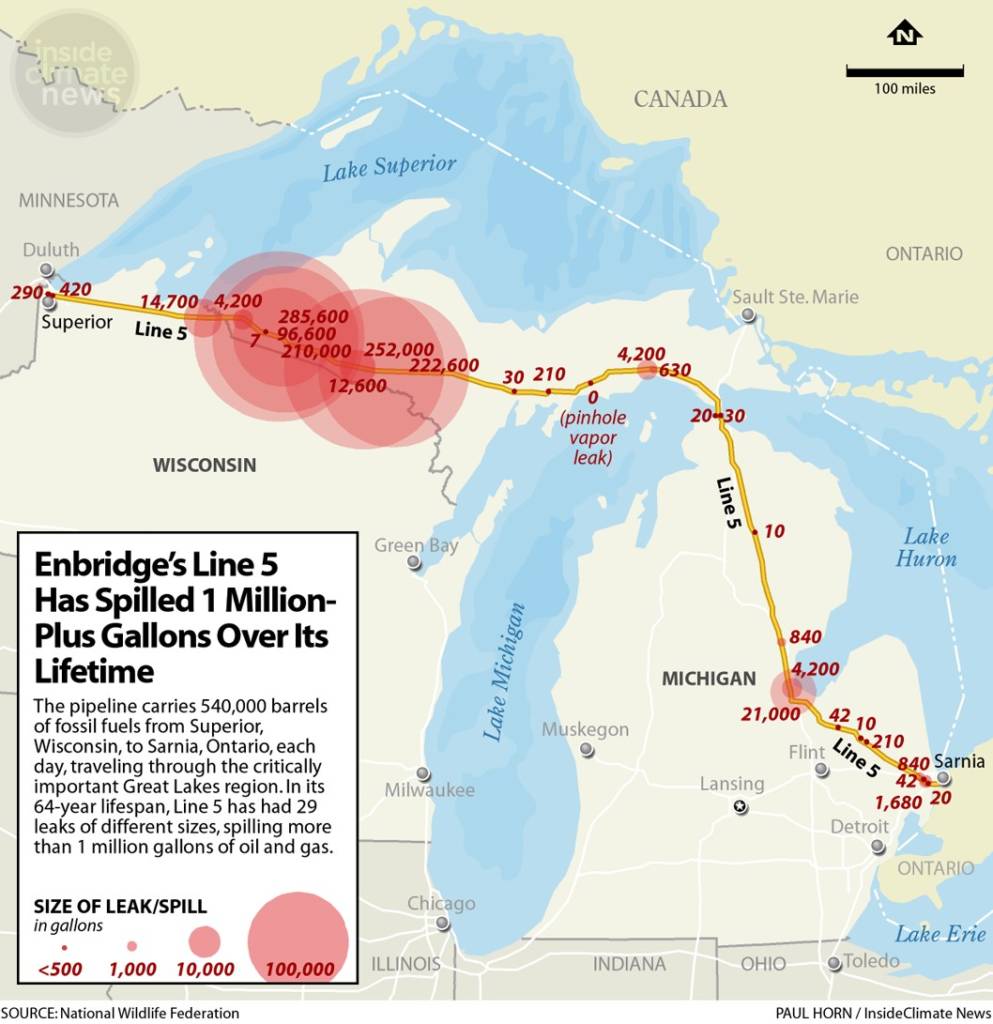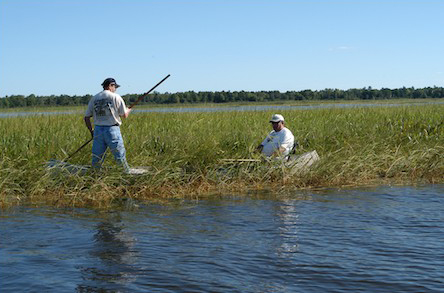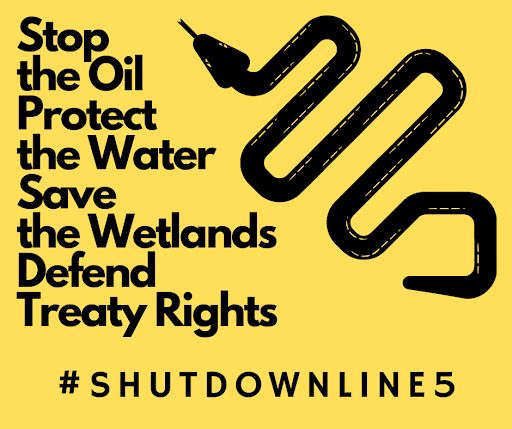The Wisconsin Department of Natural Resources (DNR) is holding a public hearing regarding a proposed new section of Enbridge Energy’s Line 5 crude oil pipeline. It will take place over Zoom and by phone on Wednesday, July 1, at 4:00 p.m. CT.
Line 5 runs through northern Wisconsin, bisecting the reservation of the Bad River Band of Lake Superior Chippewa. In 2017, the Band chose not to renew the pipeline’s easements, citing the increasing risk of an oil spill and the severe environmental pollution that would occur as a result. When Enbridge refused to comply with the demand for Line 5’s removal, the Band filed a federal lawsuit.
With the knowledge that it will likely lose this legal battle, Enbridge is seeking state approval of an alternative route. The proposed course skirts the edge of the Bad River Reservation, and any spill could still contaminate the watershed that feeds into the area’s many rivers. The health and prosperity of tribal members, the region’s wildlife and wetlands, and Lake Superior’s coastline are all at risk as long as Line 5 is allowed to continue its operation in the area.

The DNR’s virtual public hearing will concern Enbridge’s application for a waterway and wetland permit as well as the scope of the Environmental Impact Statement. Our input on scoping is needed to make sure that the DNR doesn’t ignore some important harms that the pipeline could cause, and our arguments as to why they should not be allowed to put valuable water resources at risk will educate the DNR, the media, and the public.
These beloved and vital resources include the Kakagon Sloughs, named one of Wisconsin’s 100 Wetland Gems and as a Ramsar Site (Wetlands of International Importance). The RAMSAR website explains that “… as the only remaining extensive coastal wild rice bed in the Great Lakes region, [the site] is critical to ensuring the genetic diversity of Lake Superior wild rice.”

Wild rice harvesting on the Kakagon Sloughs of the Bad River (photo credit: News From Indian Country)
Another iconic resource endangered by the proposed construction is Copper Falls State Park, where the pipeline would cross the Bad River and the Tyler Forks River just upstream of the iconic Brownstone Falls. The powerful waterfall would act as a chute during a spill, carrying the toxic oil downstream faster than any humans could muster a response.
We need your help to ensure that the DNR understands the pipeline’s possible impacts on the Bad River Band, northern Wisconsin, and the climate as a whole, and that they recognize how many Wisconsinites oppose this project. If you would like to join via computer, please register for the July 1 DNR hearing as soon as possible and get to the meeting early. There may be limited spots, and we want to have as much of a presence as possible! You can also call in by dialing (301) 715-8592 or (312) 626-6799 and entering the meeting ID: 990 3811 0941.
The submission of written comments is also highly encouraged! Send an email to dnroeeacomments@wi.gov or mail physical documents to Line 5 Comments, DNR (EA/7), 101 South Webster Street, Madison, WI 53707, to arrive by Saturday, July 11. For a sample comment and talking points to help you develop testimony or your comment, click here and scroll down.
We will be offering a webinar on how to speak effectively at a DNR hearing. Register for the webinar here.
Thank you so much! Please share this with your friends, like our Facebook page, and register and comment to the DNR today!
— From the whole Tar Sands Team of 350 Madison and the Sierra Club WI chapter!

